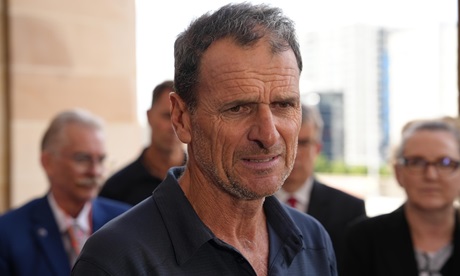Institutional child sex abuse survivors in West Australia will not benefit from most recommendations a parliamentary inquiry found would help them.
The State government rejected 22 of the inquiry’s 33 recommendations, which included allowing the names of known child abusers to be published prominently on church websites.
Just 11 of the 33 inquiry committee’s recommendations were accepted by the government or accepted in principle.
Another 14 are being examined further; eight were rejected.
Two recommendations relating to permanent stays were rejected.
These occur when the court halts child abuse proceedings because it considers there is no possibility of a fair trial due to the passage of time, deterioration of evidence or death of the accused.
The inquiry recommended permanent stay applications be allowed only after the end of the trial and that any permanent stays granted against child sexual abuse claims prior to that judgement should be reconsidered.
But it “would result in a court hearing a trial that was necessarily unfair or an abuse of process and could be constitutionally invalid” the government decided.
Abuse survivors lash out
Terry Martino (pictured), an advocate from the group Survivors of Child Abuse (SOCA), is furious at the government’s response – and that the SOCA discovered the report had been tabled in the House only after a call from ABC News.
“Survivors bared their souls at the inquiry, they shared the most intimate details of their abuse and the impact it’s had on their lives” he said.
“To find out that information was then used to form a report that was then, in large part and in many cases, rejected by the government, it’s actually quite cruel.
“It’s appalling conduct.
“The report opens with the government stating that they acknowledge the strength of survivors. These are meaningless words that infuriate survivors.”
Vigilante fears
Although it would not permit institutions to name abusers on their websites, the government did have recommendations about what might be put there.
It said institutions should adopt the inquiry’s recommendations that their websites include policy statements about child safety as well as information about how to report child sexual abuse.
There are significant risks in creating a public register of abusers said the government report tabling its decision. These include defamation actions and breaches of confidentiality provisions in existing legislation.
The WA government said international experience with similar registers suggested public websites could lead to vigilante action against child sex offenders and others who were wrongfully accused.
“If [the names of] known perpetrators are released, it will make it much easier for survivors to come forward and share their experiences, because they’ll realise they’re not the only ones” Martino argued.
On the cards
The government is considering a recommendation that it fund a new role for a Commissioner for Victims of Crime.
It will also – as recommended – determine if there are any gaps in support and advice to survivors and how these might be addressed.
In addition, it will consider further a recommendation to expand victims’ access to the National Redress Scheme.
Source
Additional readingNews category: World.




